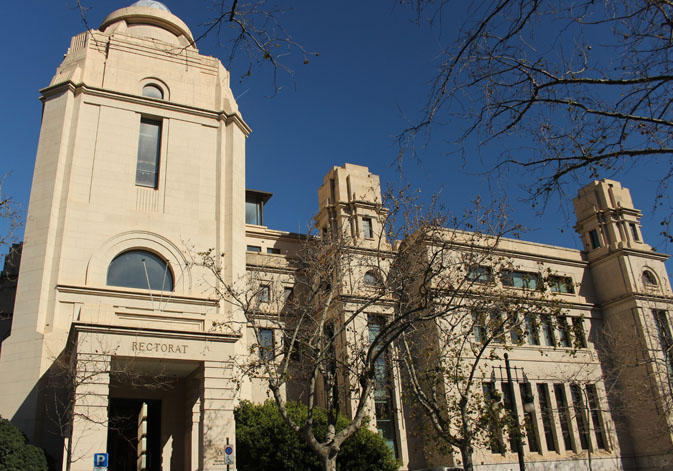The University of Valencia is the best in Spain in five subjects and is among the top 25 in the world in two of them, according to the Shanghai ranking
- Scientific Culture and Innovation Unit
- July 2nd, 2019

The update, yesterday Monday 1, of the Global Ranking of Academic Subjects (GRAS) or Shanghai ranking by subject, highlights the University of Valencia in the world ninth position in Remote Sensing (area of José A. Sobrino, recent Rei en Jaume I award of Environmental Protection), and 21st in Food Science and Technology. In addition, the institution leads the Spanish classification in the aforementioned two plus in Energy Science, Business Administration (together with ESADE and the Ramon Llull University) and Law (with the Complutense of Madrid, the University of Barcelona and the University of the Basque Country).
Thus, the University of Valencia is among the 100 best in the world in four subjects (Remote Sensing, Food Science and Technology, Tourism and Public Health), in five among the first 150 (Business Administration, Energy Science and Engineering, Agricultural Sciences, Electrical and Electronic Engineering, and Physics) and in two it is among the 200 best (Clinical and Chemical Medicine).
The GRAS, prepared by Shanghai Ranking’s Consultancy, ranks the 500 best institutions in the world (TOP500) in 54 subjects distributed in 5 areas: natural sciences, engineering, life sciences, medical sciences and social sciences, out of a total of 4,000 higher education institutions.
Respecto a la clasificación a escala española, la Universitat de València es segunda en Medicina Clínica y Física; tercera en Ciencias Biológicas, Ingeniería Eléctrica y Electrónica, Salud Pública y Turismo y cuarta en Biotecnología, Ecología, Ciencias Materiales, Ingeniería Bioquímica, Geografía, Nanociencia y Nanomateriales y Química. Regarding the classification at Spanish scale, the University of Valencia is second in Clinical and Physical Medicine; third in Biological Sciences, Electrical and Electronic Engineering, Public Health and Tourism and fourth in Biotechnology, Ecology, Materials Science, Biochemical Engineering, Geography, Nanoscience and Nanomaterials and Chemistry.
By subjects, out of the 54 of the ranking, the University of Valencia is classified in 33 of them, and it leads the classification in the Valencian Community in 25.
Methodology
To be included in the ranking of subjects, universities must have a minimum number of research publications during the 2013-2017 period and bibliometric data are collected from Web of Science and InCites. The indicators used are the number of articles published in this period (PUB), the citations normalised by category (CNCI). Also the international collaboration (IC) or number of publications with at least two different countries in the signatures of the authors, divided by the total number of publications in a subject. They are also indicators TOP, number of articles published in the main journals on an academic subject, and AWARD, number of people from the institution that have won a significant award in an academic subject since 1981.
Shanghai Ranking of Subjects: http://www.shanghairanking.com/Shanghairanking-Subject-Rankings/index.html
More information (UV Analysis and Planning Service): http://ir.uv.es/1C3qXul
















